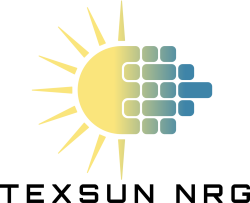If you’re considering installing solar panels on your roof, you’re not alone. Solar energy has become increasingly popular in recent years as more and more people look for ways to reduce their carbon footprint and save money on energy costs. However, before you make the decision to go solar, there are several things to consider. In this blog, we’ll explore ten important factors to keep in mind before you install solar panels on your roof.
Roof Age and Condition
The first thing to consider before installing solar panels on your roof is the age and condition of your roof. If your roof is old or in poor condition, you may need to replace it before installing solar panels. Solar panels can last for 25 years or more, so you want to make sure your roof is in good condition and can support the weight of the panels.
Roof Orientation and Pitch
The orientation and pitch of your roof are also important factors to consider when installing solar panels. Ideally, your roof should face south and have a pitch of between 15 and 40 degrees. If your roof faces east or west, you may still be able to install solar panels, but they may not be as efficient.
Shading
Shading is another important factor to consider when installing solar panels. Trees, buildings, and other objects that cast shadows on your roof can reduce the efficiency of your solar panels. Before installing solar panels, make sure there is no shading on your roof during the peak sun hours of the day.
Available Space
Solar panels require a certain amount of space to be installed. Before installing solar panels, make sure you have enough available space on your roof to accommodate the panels. In addition, you’ll need to consider the size of the panels and how many you’ll need to achieve your energy goals.
Energy Needs
Before installing solar panels, it’s important to consider your energy needs. How much energy do you use on a daily basis, and how much energy do you want to generate with your solar panels? Understanding your energy needs will help you determine the size and number of solar panels you need to install.
Incentives and Rebates
Before installing solar panels, it’s also important to research available incentives and rebates. Many states offer tax credits and other incentives to homeowners who install solar panels. In addition, the federal government offers a 26% federal tax credit for solar installation costs. These incentives can significantly reduce the cost of solar installation.
Maintenance
Solar panels require very little maintenance, but it’s important to understand what maintenance is required before installing them. Generally, solar panels only require occasional cleaning to remove dirt and debris that can accumulate on the surface of the panels.
Installation Costs
Before installing solar panels, it’s important to understand the installation costs. The cost of solar installation varies depending on several factors, including the size and number of panels you need, the type of panels you choose, and the installation company you hire. Understanding the costs will help you determine if solar installation is a feasible option for your home.
Financing Options
If the upfront cost of solar installation is a concern, it’s important to explore financing options. Many solar installation companies offer financing options, including lease-to-own and power purchase agreements. These options can help make solar installation more affordable for homeowners.
Reputation of Installation Company
Finally, before installing solar panels, it’s important to research the reputation of the installation company you hire. Look for a company with a strong reputation for quality work and customer service. Check online reviews and ask for references from past customers.
In conclusion, there are many factors to consider before installing solar panels on your roof. By understanding these factors, you can make an informed decision about whether solar installation is the right choice for your home.
